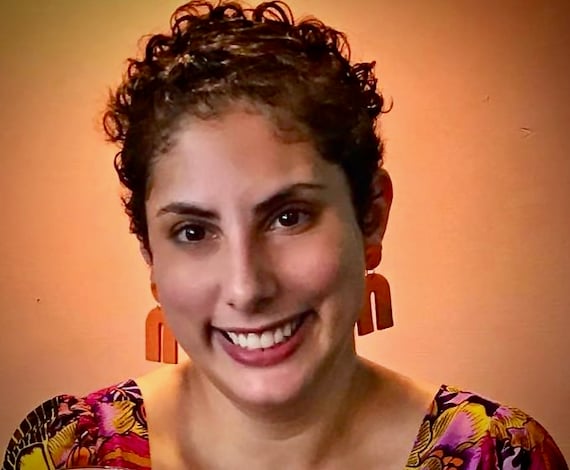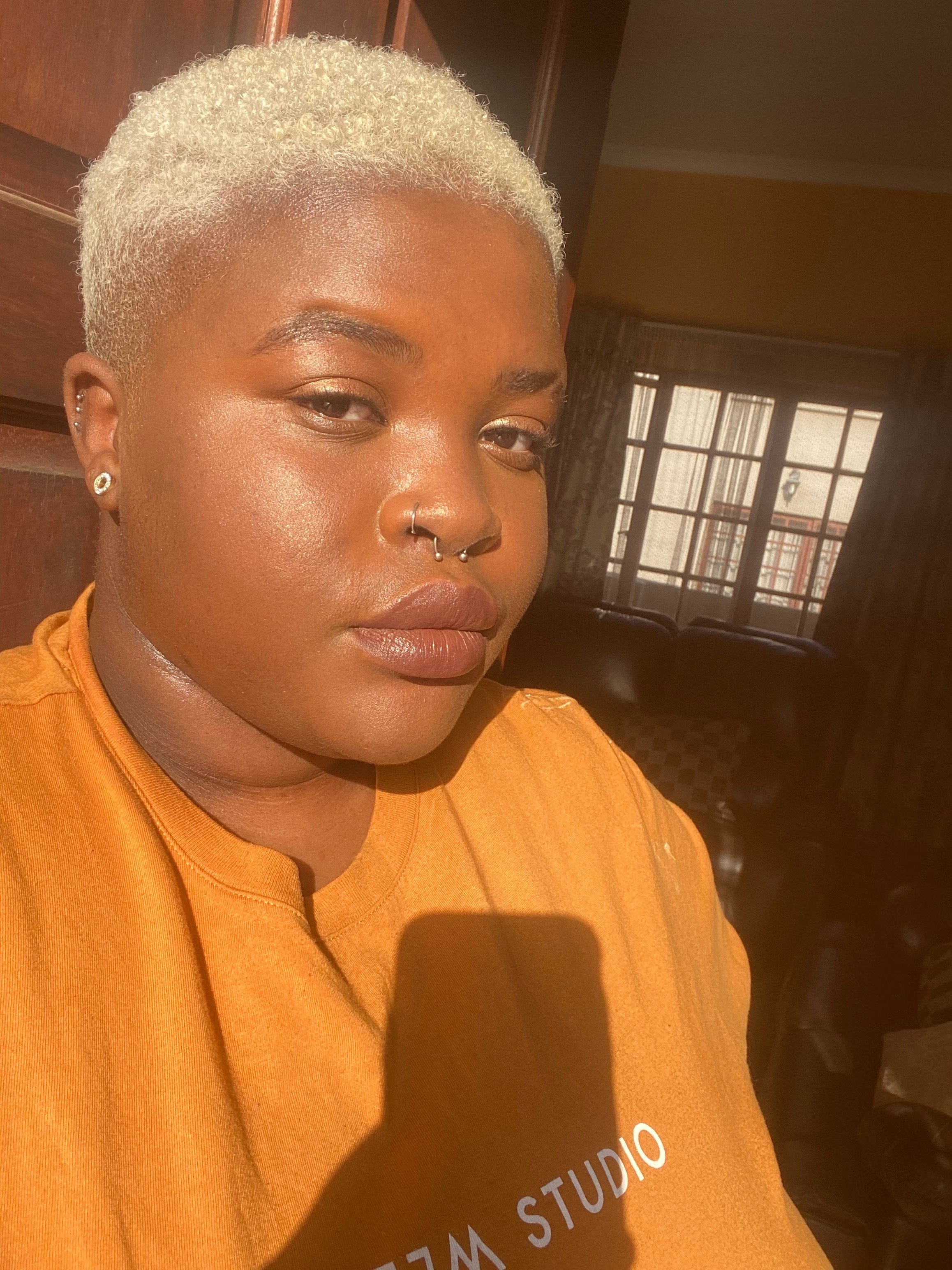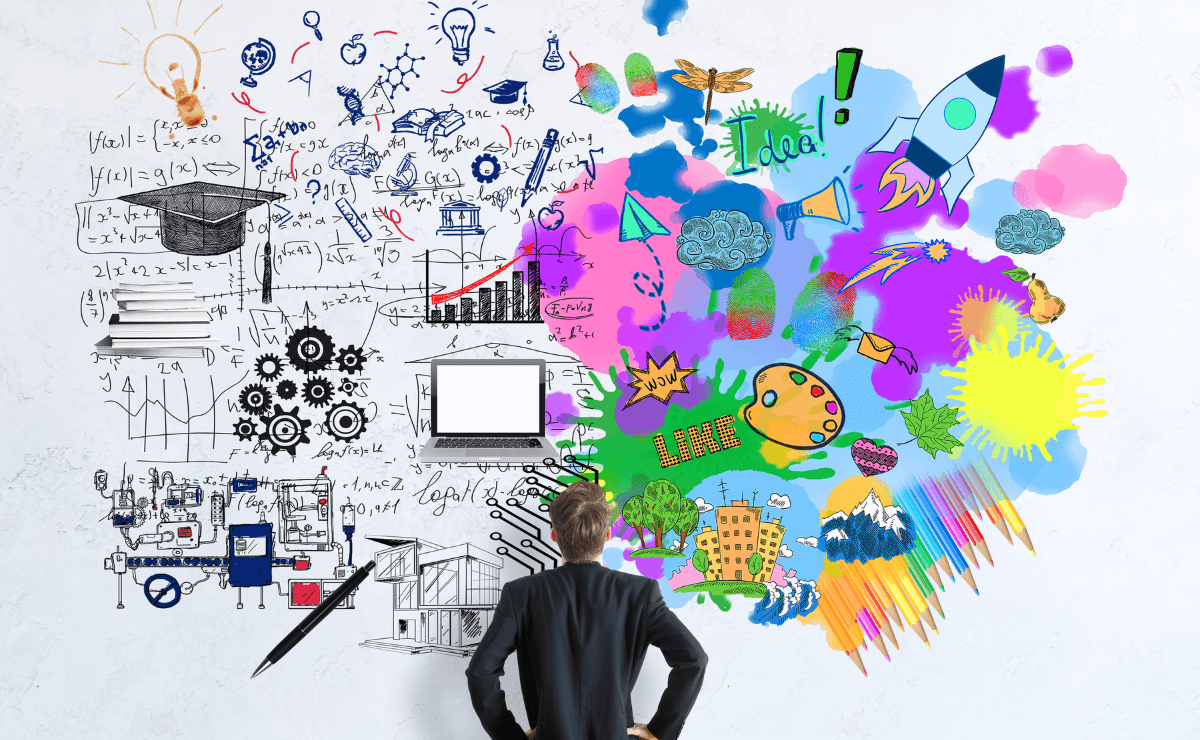If you were diagnosed with ADHD as a kid, you might remember being told to avoid sugary foods. And even if you weren't diagnosed, you probably heard well-meaning (but misinformed) adults speculate about sugar causing ADHD. (It doesn't.)
And now, as an adult, you might hear a new warning that's just as alarming — except this time, it's about caffeine.
With so many people relying on their coffee, tea, and energy drinks to stay alert and focused throughout the day, it's no wonder there's a lot of debate about its effects on ADHD brains.
But what does the science say? Let's separate the facts from the myths so you can make informed decisions about your caffeine consumption habits.
Too long; didn't read
- Caffeine is a stimulant that can make you feel more awake and alert.
- Under the right conditions, caffeine can improve productivity levels.
- Researchers believe that the amount of caffeine required to produce these effects might differ for ADHDers due to caffeine's interactions with dopamine.
- Some people with ADHD experience a paradoxical effect to caffeine and feel more sleepy after consuming it.
- Many assumptions about the dangers of caffeine for ADHDers are often inaccurate or exaggerated, as its effects are more correlated with other factors outside of neurotype.
Caffeine: how it works
Like prescription ADHD stimulant medications such as Adderall and Vyvanse, caffeine is a central nervous system (CNS) stimulant that affects brain function by altering the levels of certain brain chemicals, aka neurotransmitters.1
How much should you drink?
The recommended maximum caffeine intake is 400 mg daily — the equivalent of two shots of espresso or four or five cups of coffee. However, this recommendation varies depending on how sensitive someone is to caffeine and how quickly they break it down. (Referred to as "metabolization.”)
Caffeine as a cognitive enhancer
At doses between 200 - 300 mg, caffeine promotes wakefulness and improves three cognitive functions:
- Reaction time
- Vigilance (the ability to perform tedious tasks over several hours)
- Attention span
Stop over-caffeinating and try a more reliable motivation solution: The Inflow app! Inflow can help you better manage your ADHD with learning modules on improving focus, preventing burnout, ADHD nutrition, and more. Inflow also offers live events like coworking sessions and focus rooms to help you stay on task and achieve your goals. Get started with Inflow today!
The science of caffeine: how it affects the brain
Caffeine affects various brain chemicals (neurotransmitters) in different ways—increasing the levels of some while blocking the activity of others.
Caffeine and adenosine
Adenosine is a neurotransmitter that naturally accumulates in the brain throughout the day.2 Over time, adenosine binds to more and more of its unique receptors, lowering dopamine's production rate and ultimately promoting drowsiness and decreasing arousal.
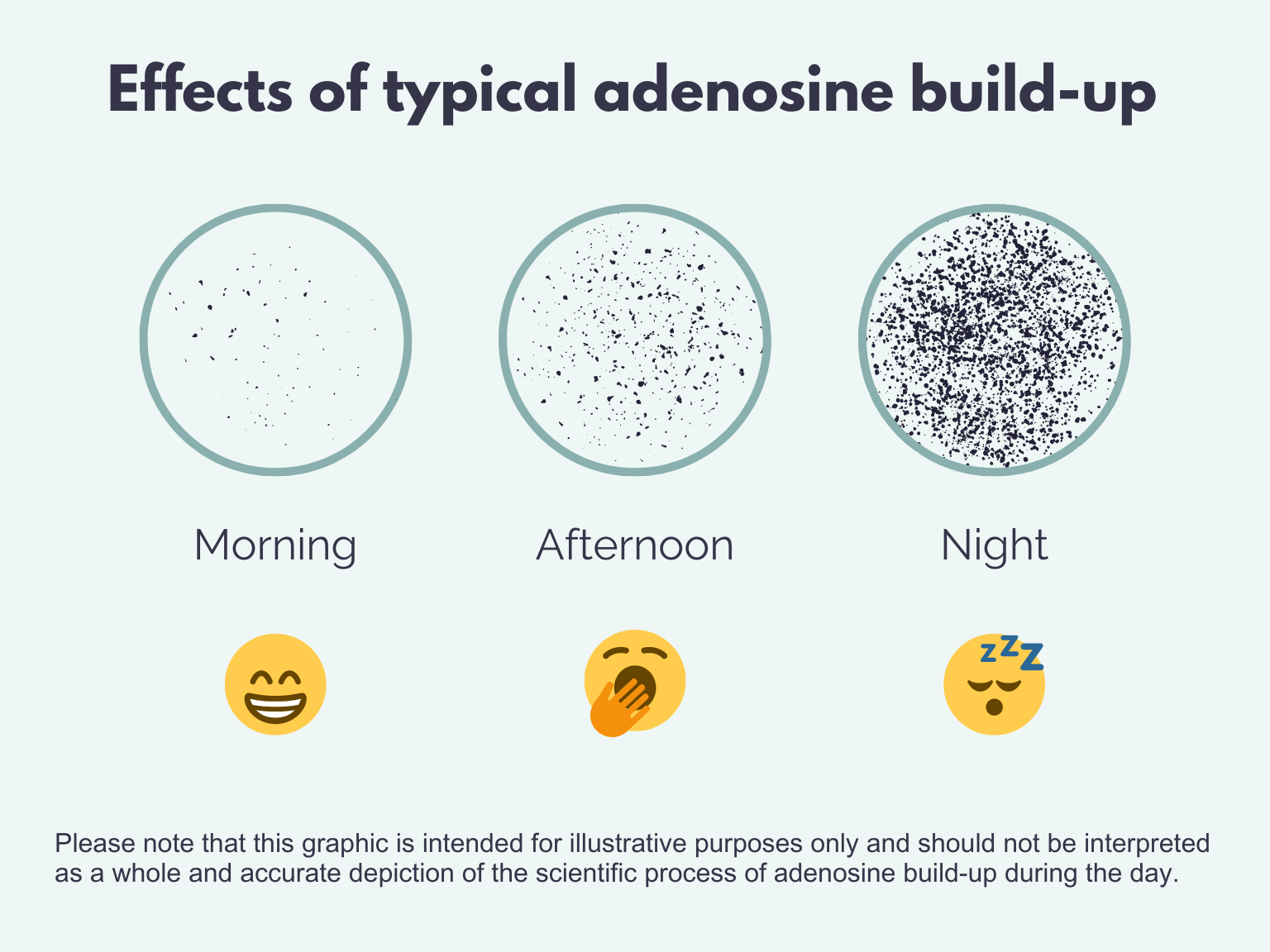
⚛️ Science translation? Once there's enough adenosine in our system, we become tired enough to fall asleep.
Enter caffeine
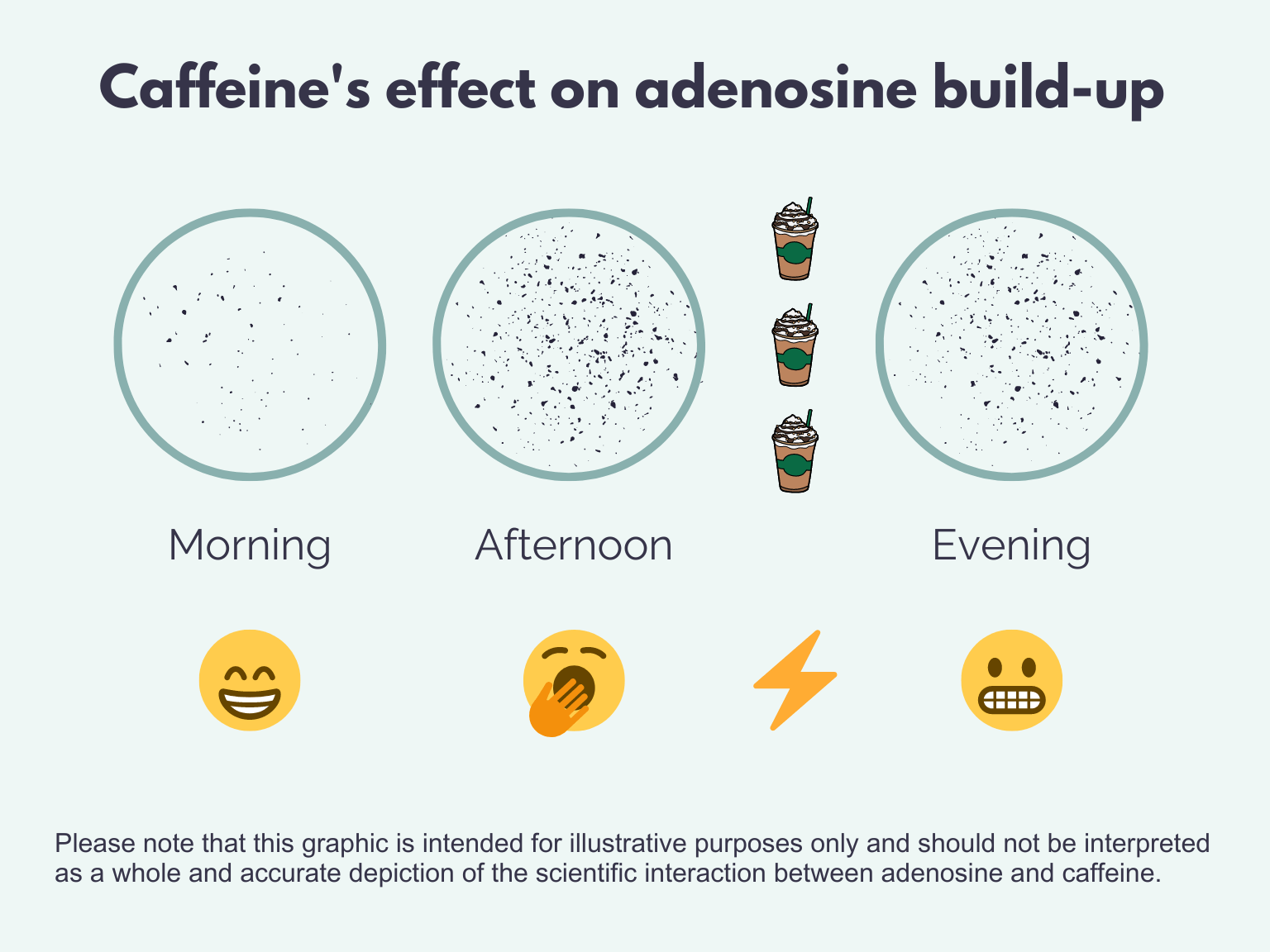
Because caffeine's molecular structure is similar to adenosine's, it can fit into adenosine's receptors. When caffeine binds to adenosine's receptors, adenosine is blocked from performing its usual actions.
This partially explains why caffeine can increase alertness, focus, and energy in the short term. The other part of the equation? Dopamine.
Caffeine and dopamine
Dopamine is a neurotransmitter that regulates certain brain functions, including reward, motivation, attention, and movement.
When adenosine is blocked from binding to its receptors, the "sleep signals" are reduced, which triggers dopamine to be released at a higher rate.
The relationship between ADHD and caffeine
Because people with ADHD likely have a short supply of dopamine, giving them a boost via caffeine brings them up to an average (neurotypical level) of alertness and focus.
On the other hand, if you provide a severely fatigued non-ADHDer with a dopamine boost, they're likely to experience a surge in productivity above and beyond the neurotypical baseline.3
This isn't to say that ADHDers should exceed the recommended daily caffeine dose—too much caffeine can make anyone feel nauseous or anxious.
FAQs about caffeine and ADHD
Can caffeine make you feel tired if you have ADHD?
Caffeine can have a calming effect on some people with ADHD. A growing number of ADHDers have reported that caffeine has a paradoxical effect on them, making them feel calmer and sleepier after their afternoon tea. However, there's no concrete evidence to suggest that ADHD brains are more correlated with paradoxical caffeine reactions than neurotypical brains.
In fact, research shows that caffeine use is actually more likely to make adolescents with ADHD have trouble falling and staying asleep, as opposed to feeling sleepier.4
Note: We are not saying that those who experience sleepiness after consuming caffeine are lying or that their experiences aren't valid. We are simply highlighting the need for more research and that there are more factors at play than the existence (or non-existence) of ADHD.
Will you get ADHD if your mom drinks coffee while pregnant?
Whether caffeine consumption by a pregnant mother will trigger ADHD development in the unborn baby isn't yet known.
While a 2021 study found that the use of legal substances wasn't associated with "offspring ADHD,"5 another 2021 study reported, "links between prenatal caffeine exposure and ADHD were observed with maternal coffee consumption of greater than 8 cups per day."6
TL;DR: No one knows.
What happens if you mix caffeine and ADHD medication?
How you react to mixing caffeine and ADHD medication depends on your prescription instructions, pre-existing health conditions, and genetics. However, there have been a few studies that have explored this question.
An outdated study concluded that adding low doses of caffeine to methylphenidate-based medications, such as Ritalin or Concerta, was "superior to all other treatment conditions."7
By contrast, some believe combining caffeine with amphetamines can make the medication less effective. It can also overstimulate the nervous system and, in turn, cause side effects like chest pain. It's a lose-lose situation.
To summarize this section, research results are mixed and many variables can affect the outcome, such as medication type, genetics, and dosage.8
Final thoughts: Spilling the coffee beans
You may still be unconvinced that caffeine (in moderation) can benefit the ADHD brain.
But the truth is that without caffeine, the author of this article, an ADHDer herself, wouldn't have been able to write it.
-
Sources
1 Cureus | The Neurophysiology of Caffeine as a Central Nervous System Stimulant and the Resultant Effects on Cognitive Function
2 Current Topics in Medicinal Chemistry | The Role of Adenosine in the Regulation of Sleep
3 Neuroscience and Biobehavioral Reviews | A review of caffeine's effects on cognitive, physical and occupational performance
4 Journal of Pediatric Psychology | Caffeine Use and Associations With Sleep in Adolescents With and Without ADHD
5 The Brown University Child & Adolescent Psychopharmacology Update | Maternal use of substances while pregnant does not affect ADHD symptoms in offspring
6 The Journal of Child Psychology and Psychiatry | Prenatal caffeine exposure: association with neurodevelopmental outcomes in 9- to 11-year-old children
7 Canadian Journal of Psychiatry | Responses to methylphenidate and varied doses of caffeine in children with attention deficit disorder
8 Journal of Caffeine Research | Caffeine as an Independent Variable in Behavioral Research: Trends from the Literature Specific to ADHD

